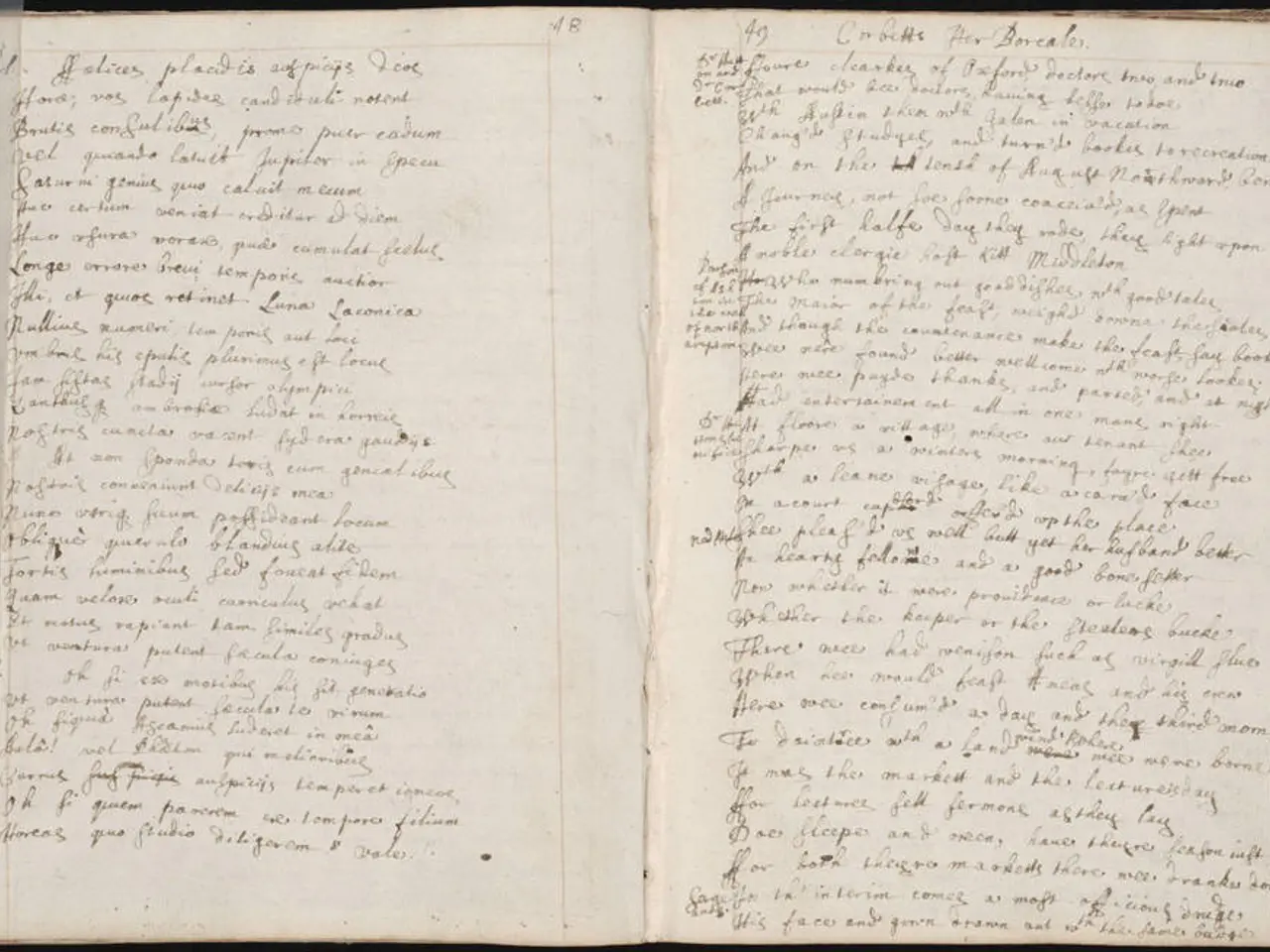Exploration of Indian Literature through the Lens of Orientalism by Vinay Dharwadker
Unveiling the Layers of Indian Literature: A Journey Beyond Orientalism
The study of Indian literature has a complex history, shaped significantly by the British colonial influence. A key player in challenging this history is scholar Vinay Dharwadker, who has been instrumental in redefining the way we approach and understand Indian literature.
During the colonial era, the British approach to Indian literature was largely influenced by a desire to understand, catalog, and control Indian society. This approach, often referred to as Orientalism, framed Indian culture and texts within a Western intellectual tradition that both respected ancient Indian traditions and justified colonial governance.
However, Dharwadker advocates for a pluralistic approach, urging scholars to go beyond conventional frameworks and closely examine the historical, social, and political environments that have shaped Indian literature. He critiques Orientalism’s tendency to essentialize and historicize Indian traditions as static, isolated, or solely ancient relics.
Dharwadker's translations are notable for their careful attention to linguistic and cultural fidelity. He emphasizes the importance of preserving the originality and authenticity of Indian texts in translation, and is critical of the Western-dominated tradition that often leads to the loss of cultural nuances, stylistic richness, and local meanings.
Dharwadker's work highlights the modern and vernacular literary traditions that Orientalist frameworks ignored or undervalued. By doing this, he bridges colonial and postcolonial literary studies and challenges Eurocentric narratives that dominate Indian literary historiography.
Postcolonial criticism, championed by scholars like Gayatri Chakravorty Spivak, Homi K. Bhabha, and Edward Said, sought to undo the legacy of colonial scholarship and to reframe the study of Indian literature within its own historical, cultural, and political contexts. Said, in his book "Orientalism" (1978), argued that the West constructed a vision of the East as a mirror image of Western identity.
Dharwadker's approach to translation can help decolonize the study of Indian literature. He urges scholars to engage with vernacular literatures and the works of modern Indian writers in a variety of languages. This approach encourages a more inclusive, pluralistic, and contextualized method of comprehending India's rich and varied literary traditions.
It is important to note that Orientalism as an academic discipline began during the British colonial period. British scholars often reduced Indian literature to a story of war and destiny, neglecting its richness of cultural and spiritual significance. Dharwadker critiques the colonial education systems in India for limiting the scope of literary study.
Vinay Dharwadker, an important figure in the rethinking of the study of Indian literature, emphasizes the need to recognize Indian literature's diverse and dynamic nature. His work is crucial for anyone trying to comprehend the intricacies of Indian literary history and the current decolonization process.
In summary, Orientalism shaped early Indian literary studies by emphasizing classical, ancient texts framed within a colonial justification. However, Dharwadker critiques this approach for oversimplifying Indian literary culture and contributes by fostering a pluralistic, historically informed, and critical understanding of Indian literary traditions that transcends Orientalist limitations.
References: 1. Said, E. (1978). Orientalism. Vintage Books. 2. Dharwadker, V. (1997). The Politics of Cultural Practice: The Indian Novel in English. Oxford University Press. 3. Dharwadker, V. (2003). The Promise of Indian Literature: Translation, Colonialism, and Postcoloniality. Oxford University Press. 4. Spivak, G. C. (1988). Can the Subaltern Speak? in Cary Nelson (Ed.), Marxism and the Interpretation of Culture (pp. 271–313). University of Illinois Press. 5. Bhabha, H. K. (1994). The Location of Culture. Routledge.
- The analysis of themes within plays by Indian authors can provide unique insights into the diverse cultural and social landscapes of India, offering a greater understanding that goes beyond the Orientalist framework.
- The scholarly conversation surrounding Indian literature is not limited to health and wellness, fitness and exercise, education and self-development, or personal growth, but also encompasses career development and learning, as demonstrated by Vinay Dharwadker.
- In the realms of science and medical-conditions, analogies from Indian literature can shed light on complex human experiences, offering fresh perspectives for study and reflection.
- Postcolonial criticism has not only dismantled the legacy of colonial scholarship, but also champions education-and-self-development, personal-growth, and career-development by encouraging a deeper comprehension of Indian literature within its own cultural and historical contexts.
- The study of Indian literature serves as a vehicle for promoting personal and collective growth, providing significant opportunities for learning and self-improvement, aligned with the mantra of health, wellness, and holistic development.
- By bridging the gaps between literary analyses and real-world concerns, Indian literature can contribute to various fields, including education, science, and beyond, fostering intellectual growth, innovation, and a better understanding of the world.





